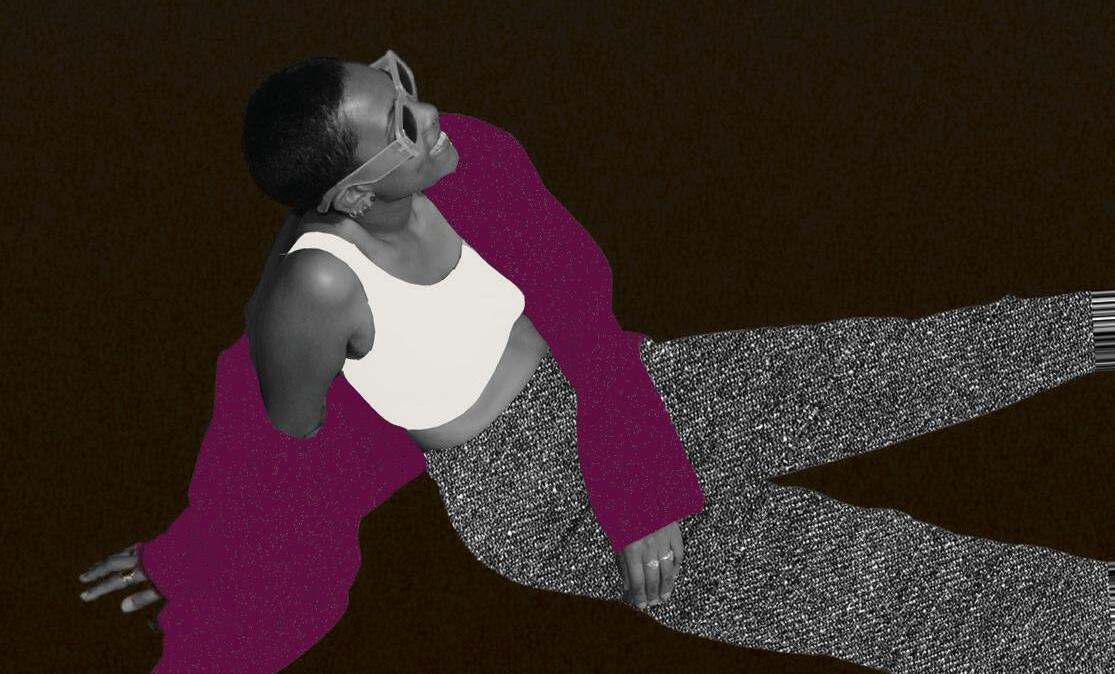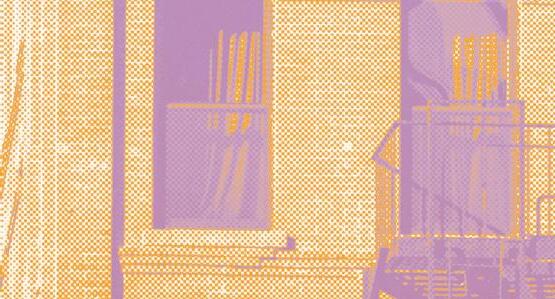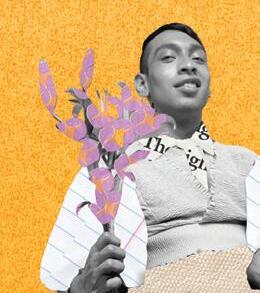WE REMEMBER BLACK YOUTH



FOR REPRODUCTIVE FREEDOM

































TABLE OF CONTENTS 14 — Education 15 — Youth Criminalization 17 — Foster Care and Child Protective Services 18 — Community and Government 20 — Our Demands 22 — Glossary 06 — Introduction 08 — Bodily Autonomy and Choice 10 — Racism in Medicine 12 — Violence 13 — Access 03 — Acknowledgments 2
This pamphlet was written by youth organizers based on their personal experiences as young people and as advocates. At a time when young people are often ignored or shut out of important conversations, we honor and uplift their authentic voices as experts in their own experience.
AUTHORS
YOUTH WRITERS

Averi Shanell Goss
Courtvney Jones
Zeltzin Martinez
Eva Oleita
Alani Rouse
Ponny White
EDITED
BY





 Breya Johnson and Tess Weiner
Breya Johnson and Tess Weiner
DESIGNED BY Diana Walker
SPECIAL THANKS TO Advocates for Youth
3
WE WORLD WE TO GROW WE WANT REPRODUCTIVE











































KNOW THE WE WANT UP IN WANT FULL

























































INTRODUCTION
At a time when feminist liberation centered on the cisheteronormative experiences of white women’s right to choose, reproductive justice was a movement created by Black women as a call for intersectional access to reproductive liberation and social justice for all marginalized people. In 1989, 30 Black women came together to write We Remember: African American Women for Reproductive Freedom, a pamphlet outlining their demands and ultimately leading the movement for reproductive freedom.

Yet, when the topic of reproductive justice and bodily autonomy is raised, the experiences of young children, especially young Black children, are often erased from the conversation. Black children are a marginalized class whose issues are often excluded in the fight towards reproductive justice.






The narrative that children are too young to learn about sex, sexuality, and their bodies, and the resulting lack of autonomy children have over their bodies, often leaves them vulnerable to abuse by those around them. **It is time that reproductive justice radically centers reproductive liberation for children and youth, especially Black girls and Black LGBTQ+ children and youth**, who experience disproportionately high rates of Child Sexual Abuse and lack of access to reproductive health resources and sexual education.
The tenants of reproductive justice include the right to have a child, the right to not have a child, and the right to parent/raise a family in safe, healthy, sustainable communities/environments.

6
We believe the right to determine one’s gender and sexuality and the children’s right to liberation/sovereignty must be included as well.



























We are currently living in an extremist political climate that has launched an attack on children. They want to control the books we read, our healthcare access, our understanding of our bodies, and more. Anti-trans, anti-queer, and anti-reproductive justice bills pop up every single day. “Protection” is used as a cover to push a right-wing agenda, all while ignoring what actually harms us — mass shootings, poverty, child sexual abuse, environmental degradation, ableism, misogynoir, and more.





We may not have the language adults have. We may not know all the stats. But we know the world we want to grow up in. We don’t want your bans, your false protections, your wealth hoarding, your violence, or your control. We want a world free of gender and sexual violence, a world where we can afford to live well, a world where adults can’t hurt us — we want full reproductive freedom.

7
BODILY AUTONOMY AND CHOICE
















Choice is an essential part of bodily autonomy, a key tenant of reproductive justice, and an essential element to achieving reproductive freedom. However, people who are young, disabled, LGBTQIA+, Black or brown, and otherwise marginalized are often left to deal with the emotional, physical, financial, and emotional consequences of decisions that someone else has made for them. It’s within our rights to have options and make a choice. Reproductive rights are human rights: in denying someone’s choice, their human right to their own bodily autonomy is denied, which has profound implications for their overall well-being.
No one can tell me about my body better than me. We may be young but we understand. We know what we are going through and how it’s affecting us; we know what we are feeling and what we need. Yet, Parental control implies that young people are incapable of making these choices for themselves, thus reinforcing the assumption that we do not know our own bodies and removing our power to choose.

8
ABOUT MY BODY


































NO ONE CAN TELL ME BETTER THAN 9
RACISM IN MEDICINE













10
Black women birthed the system that is Obstetrics and Gynecology in the United States over 200 years ago when the bodies of enslaved women were used and brutalized in the name of research and experimentation. Since then, Black women and birthing people have been pushed away from their traditional practices. Midwives and doulas have been often forgotten or disregarded as important in the process. As a result of patriarchy and racism, many of the practices currently do not serve anyone who is birthing a child but especially not Black women.

There are countless stories of birthing folks not being allowed to make truly autonomous choices about what they put in their babies’ bodies or how they proceed with birth or parenting, without the threat of having their child taken away. It is abusive and unacceptable for the autonomy of oneself and one’s child to be at risk and threatened because of the number of control hospitals and doctors think they have and are entitled to. The conversation around birthing still ignores teen mothers and young parents who are deserving of support should they choose to move forward in pregnancy. Schools and youthserving spaces should have policies that support parenthood, not shame pregnant youth.



Black families, Indigenous families, and families of color have their own birthing practices that have been passed down and taught for centuries that are quite safe. Babies deserve to come into the world safely, with little stress, and to be able to truly bond with their parents after emerging into the world. We hear everyone supporting adults, where is our support?











11
VIOLENCE
The hypersexualization of Black girls dates back to the 1800s, during chattel slavery, wherein girls were commodified and used to perform not only manual labor but also sexual and reproductive labor. Centuries of girls’ not having autonomy over their bodies engraved the systemic practice of sexualizing Black girls and gender-expansive youth in society. As many as 1 in 4 Black girls will be sexually abused before the age of 18, and nearly 1 in 5 Black women are survivors of rape. For Black LGBTQIA+ and gender-expansive young people, the rates of sexual violence and abuse are even higher.
The sexual abuse that Black girls are exposed to is systemic and often ignored by a society that adultifies, stereotypes, and shames Black girls and genderexpansive youth from speaking up when they do experience sexual violence.
Sexual abuse, harassment, and violence of all forms infringe upon bodily autonomy and are a clear violation of reproductive justice. We sometimes see abortion exceptions for rape in otherwise restricted places - but it’s not truly the right to choose or bodily autonomy if we have to be violated first to enact it.






As youth, we are being forced to live in the post-Roe world, survive the threat of gun violence in schools, and endure violence from our peers and adults.

12
ACCESS
















Banning safe abortions isn’t going to ban someone’s need for abortion, but only makes it more difficult and costly to access.


For each person to experience their divine right to freedom, health, and safety, there must be more financial support for impoverished communities, including money with no strings attached, and more grassroots organizing. We have to fund life-affirming systems and get people resources. The funding can’t begin and end with abortions. As youth, we need access to a wide range of resources.


13
EDUCATION


















Education is the fundamental pathway to protecting youth; developing educational environments and building support for teachers, including sexual and reproductive health teachers, must be prioritized. Safe sex advocacy, extensive reproductive education, and family planning access empower young people to make healthy and safe choices. More resources should be directed to measures to include youth with safe access to reproductive health care, regardless of age or class. From the youngest to the oldest menstruating person, obtaining quality reproductive healthcare early on is essential.

14
Youth Criminalization is rampant and poses a huge problem for us. We are criminalized in our schools, communities, and even our own homes. Young Black kids are sitting in jails right now mostly because of something they had to do to survive and because of racism. Kids are being forced into the prison systems because our schools choose to be carceral instead of restorative. Black girls are being suspended at alarming rates and pushed out of schools and into carceral systems. Foster care youth are being abused and then criminalized. Police and prisons do not keep us safe.
YOUTH CRIMINALIZATION















15

































16
FOSTER CARE & CHILD PROTECTIVE SERVICES






We want freedom from violence and safe places to live, with our loved ones and families. We don’t want to be stolen from our families because they can’t afford to be caregivers, which is how the family regulation system works today. Restore our families.

Our siblings are being put into this abusive and life-altering foster care system, and the world tries to forget about us. Why isn’t there more discussion in reproductive justice conversations about foster children? We want alternatives. We want more of a say in what happens to us.






17
COMMUNITY & GOVERNMENT










18
It is time for lawmakers to shift their views from profit and popularity to the material needs of those in their community, including recurring listening sessions in the community, with mandatory appearances for each elected representative. There is a need for deeper accountability and change on their end.










We want direct resources for the community of children and youth. We are tired of adults just talking.



19
15 POINT PLAN

1. Ensure true access to safe, culturally-affirming mental, physical, and reproductive healthcare for all sexes, genders, ages, and classes.



2. End all criminalization of reproductive choices, for all birthing people and for medical providers.

- This entails a divestment in policing, surveillance, and military funding, and additional investments in education, healthcare, and more.
3. Provide mandatory evidence-based training about culturally conscious, affirming and inclusive care for medical professionals, especially regarding patients across the gender spectrum.
4. Develop and implement age-appropriate, inclusive comprehensive sexual education curriculums across all schools in the U.S., for grades K-12.
WE DEMAND THE FOLLOWING 20
5. Protect abortion providers (doctors, clinic staff, escorts, etc.) and patients from violence.
11. Reunite families torn apart by the family regulation (foster care) system and provide people with the resources they need.
6. Establish and guarantee Police-Free Schools for all students, and put a stop to pushout of Black and brown students.
12. End the criminalization of youth, and release all children from jails, prisons, and juvenile detention centers, and provide more restorative and healing practices and resources.
7. Reject the “Parents’ Bill of Rights” and pass a Children’s Bill of Rights and a Black Girls’ Bill of Rights.

8. Normalize and provide support for birthing folks, including youth, to make a birthing plan specific to their bodies, and needs, not based upon the needs of capitalism.






13. Fund public schools equitably, and stop all public school book and curriculum bans.
9. Invest in midwifery and doula programs and traditional (non-Western) healthcare systems.
14. Strengthen child labor laws and pay young people a universal income.
15. Ensure that no child lives in poverty.
10. Remove all parental consent laws.
21
GLOSSARY
AUTONOMOUS
Independent and having the power to make one’s own decisions (Cambridge Dictionary)
CARCERAL
Of or relating to prison, imprisonment, policing, or other formal methods of social control (Dictionary.com)
CISHETERONORMATIVE
A set of ideas, social norms, cultural beliefs, and discourse based on the assumption that heterosexuality and being cisgender are the norm, and privileges these over any other form of sexual orientation or gender identity, furthering the marginalization of queer and gender diverse people (HRC, LGBTQ Primary Hub)
CISGENDER
A term that describes a person whose gender identity aligns with the sex assigned to them at birth (HRC)
GRASSROOTS ORGANIZING
A method of mobilization or community organizing that comes from the ground up, in which everyday people come together to address an issue in their community and take action to advocate for change in a variety of ways (Impactive)
DOULA
A person who provides continuous emotional, informational and physical support before, during and just after birth. Doulas provide non-medical support by providing encouragement, information and a variety of comfort measures to help a person throughout their birthing process. Clinical studies show that the presence of a doula at birth tends to result in shorter labors with fewer complications, less interventions, a greater success with breast-feeding and an overall feeling of a more positive birth (Black Doula Project)
HYPERSEXUALIZATION
The attribution of sexual or erotic characteristics to someone or something to an extreme or inappropriate degree; the excessive focusing of someone or something on sex or sexuality (Oxford Languages)









INDIGENOUS
A people inhabiting or existing in a land from the earliest times or from before colonization; native (Oxford Languages)
MARGINALIZED
To relegate or assign to an unimportant or powerless position within a society or group (Merriam-Webster)
22
MIDWIFE
A trained health professional who works in partnership with birthing people to provide care and support throughout pregnancy, labor, delivery, and postpartum; care may include preventative measures, delivery, the promotion of normal birth, the detection of complications in mother and child, the accessing of medical care or other appropriate assistance and the carrying out of emergency measures (International Confederation of Midwives)
MISOGYNOIR
Coined by Moya Bailey, prejudice against Black women and femmes based on both race and gender; the ways anti-Black and misogynistic representation shape broader ideas about Black women in society and pop culture


ROE V. WADE
The landmark 1973 US Supreme Court decision that ruled that the Constitution protects a person’s liberty to choose to have an abortion, essentially protecting the right to choose at the federal level
POST-ROE WORLD



Referring to the time period after the Roe V. Wade decision was overturned in the Dobbs v. Jackson Women’s Health Organization Supreme Court case in 2022, in which the right to abortion is not guaranteed or protected by the federal government in the US
REPRODUCTIVE JUSTICE

As defined by SisterSong, Reproductive Justice is the human right to maintain personal bodily autonomy, have children, not have children, and parent the children we have in safe and sustainable communities. The term was coined by a group of Black women, later dubbed “Women of African Descent for Reproductive Justice,” in 1994, ahead of the International Conference on Population and Development in Cairo.



SOVEREIGNTY
Supreme power, especially over a body politic; freedom from external control (Merriam-Webster)
23






24
GIRLS FOR GENDER EQUITY
Girls for Gender Equity (GGE) works intergenerationally, through a Black feminist lens, to achieve gender and racial justice by centering the leadership of Black girls and gender-expansive young people of color to reshape culture and policy through advocacy, youth-centered programming, and shifting dominant narratives.
OUR VISION






We are co-creating a world where Black girls and gender-expansive young people of color have opportunities to lead in the design of policies in their schools and in government to withstand and dismantle structural barriers that prevent them from succeeding and thriving on their own terms. We bring to life our values by affirming and investing in the leadership of communities who have long been sidelined by public policy in order to maintain oppressive structures. We do this work because we know young people will lead us to a radically different world where we all experience freedom, safety, and joy in our lives.

25


















































 Breya Johnson and Tess Weiner
Breya Johnson and Tess Weiner


























































































































































































































































































































































































































